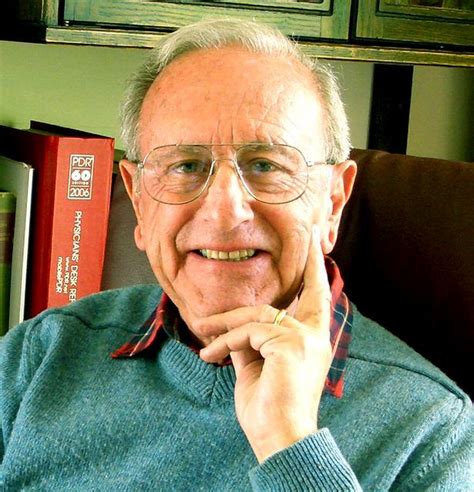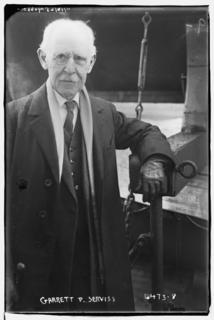A Quote by P. J. O'Rourke
Ever read any [Friedrich] Hayek? He's great. The Road To Serfdom is like... I'm not a big political-science reader, but I actually dog-eared my copy. I ended up going back through it and writing a précis, I was so impressed by this book. It's all about what happens when government tries to make everything right.
Related Quotes
. . I think the Adam Smith role was played in this cycle i.e. the late twentieth century collapse of socialism in which the idea of free-markets succeeded first, and then special events catalyzed a complete change of socio-political policy in countries around the world by Friedrich Hayek's The Road to Serfdom.
The first proponent of cortical memory networks on a major scale was neither a neuroscientist nor a computer scientist but .. a Viennes economist: Friedrich von Hayek (1899-1992). A man of exceptionally broad knowledge and profound insight into the operation of complex systems, Hayek applied such insight with remarkable success to economics (Nobel Prize, 1974), sociology, political science, jurisprudence, evolutionary theory, psychology, and brain science (Hayek, 1952).
The second book, which was probably more from a professional standpoint - when I read Junot Díaz's Drown, I was like, Oh my god, you can write these stories and people will actually read them beyond your own little community. This guy's book is blowing up and it seems like [he's writing about] the neighborhood that I grew up in. That was a big deal. I read that in graduate school, so that's when I was really taking writing seriously, but I didn't know you could do it. I didn't know you can actually be an author. It was a weird epiphany.
But Friedman seemed to share Friedrich Hayek's extreme and inaccurate view that socialism of the sort that Britain embraced under the old Labour Party was incompatible with democracy, and I don't think that there is a good theoretical or empirical basis for that view. The Road to Serfdom flunks the test of accuracy of prediction!
Mankind has tried the other two roads to peace - the road of political jealousy and the road of religious bigotry - and found them both equally misleading. Perhaps it will now try the third, the road of scientific truth, the only road on which the passenger is not deceived. Science does not, ostrich-like, bury its head amidst perils and difficulties. It tries to see everything exactly as everything is.
You've got to be a good reader. So whatever genre that you're interested in, read a lot of books about it and it's better than any kind of writing class you'll ever take. You will absorb techniques and then in a lot of cases you can just start writing using the style of the book or the author that you admire and then your own style will emerge out of that. Be a diligent reader and then try to write seriously, professionally and approach everything in writing in a professional way.
Write what you want to read. So many people think they need to write a particular kind of book, or imitate a successful style, in order to be published. I've known people who felt they had to model their book on existing blockbusters, or write in a genre that's supposed to be "hot right now" in order to get agents and publishers interested. But if you're writing in a genre you don't like, or modeling yourself on a book you don't respect, it'll show through. You're your first, most important reader, so write the book that reader really wants to read.
In my couple of books, including Going Clear, the book about Scientology, I thought it seemed appropriate at the end of the book to help the reader frame things. Because we've gone through the history, and there's likely conflictual feelings in the reader's mind. The reader may not agree with me, but I don't try to influence the reader's judgment. I know everybody who picks this book up already has a decided opinion. But my goal is to open the reader's mind a little bit to alternative narratives.
The book, as it stands, seems to me to be one of the most frightful muddles I have ever read, with scarcely a sound proposition in it beginning with page 45 [Hayek provided historical background up to page 45; after that came his theoretical model], and yet it remains a book of some interest, which is likely to leave its mark on the mind of the reader. It is an extraordinary example of how, starting with a mistake, a remorseless logician can end up in bedlam.
Yeah I was aware of the book, but hadn't read it. So as soon as I'd finished the script, I got a copy of the book and read that. My wife had read it and she loves it, so that was a good sounding board. I like her writing style, she's such a page-turner. I enjoyed The Constant Princess as well. I think she's great. The books are very popular with women and I can see why.
I don't believe that murders can be "solved." I think that this is the big lie of the mystery novel, that you should close the book and feel that the world is back in order and everything's all right. I want the reader to know that the world is not all right, and maybe we ought to do something about it.
A travel book is a book that puts you in the shoes of the traveler, and it's usually a book about having a very bad time, having a miserable time, even better. You don't want to read a book about someone having a great time in the South of France, eating and drinking and falling in love. What you want to read is a book about a guy going through the jungle, going through the arctic snow, having a terrible time trying to cross the Sahara, and solving problems as they go.

































